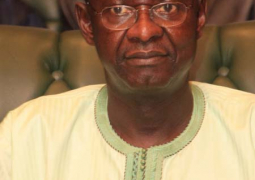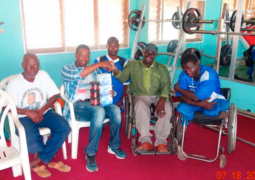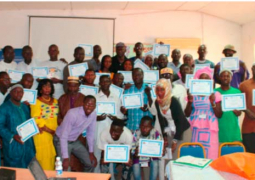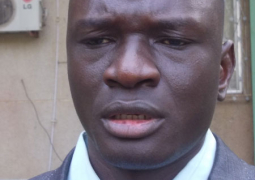"Human rights are foreign to no culture and native to all nations that they are thus universal, that one cannot pick and choose among human rights whether civil, cultural, social, economic or political for a fundamental feature of these rights is their universality, indivisibility, interdependence and interrelatedness." Kofi Annan
The concept of nationhood is as important today as it was at the time of independence in 1965. A sense of a shared destiny is essential for nation building and for the development of a culture of rights and obligations. Nationhood is not an event. Its form and shape cannot be predetermined. Nationhood is an active building process. For us, the outlines of what must be built are set out in the Preamble to our Constitution, which reads:
This constitution provides for us a fundamental Law, which affirms our commitment to freedom, justice, probity and accountability. It also affirms the principle that all power emanate from the sovereign will of the people.
The fundamental rights and freedoms enshrined in this Constitution will ensure for all time respect for and observance of human rights and fundamental freedoms for all, without distinction as to ethnic considerations, gender, language or religion. In acknowledging our fundamental rights, we also affirm our duties and responsibilities as citizens of this Country.
This Constitution guarantees participatory democracy that reflects the undiluted choice of the people. The functions of the arms of government have been clearly defined, their independence amply secured with adequate checks and balances to ensure that they all work harmoniously together towards our common good.
As we usher in the
In this spirit, we continue to pledge our firm allegiance to our beloved Country and pray that the Great God of Nations will keep us all ever true to The Gambia".
Exciting as these words were at the time of the adoption of the 1997 Constitution, the more important question is the value of these commitments as the pages of the Constitution yellow with age.
The "we" who desire all of these good things cannot merely be the government as the elected representatives of the people. The "we" includes all of us. We must all then commit to working for that quality of nationhood that the Constitution speaks of. We have to act for what is right and we have to act against what is wrong.
In the building of a rights based culture, we should ask these set of questions.: How do we value our freedom? Can we provide for further steps in the progressive realisation of rights? Are we in a position to generate resources on a sustainable basis? What steps are we taking to safeguard our freedom?
One of the main challenges facing our nation is the absence of some matrices or yardsticks for evaluating the progress made in realizing basic human rights, a sort of a progress report against the benchmark of commitments made in the Preamble to our Constitution. Furthermore, Chapter IV of the 1997 Constitution- our Bill of Rights also commits to a progressive realisation of second-generation rights - and in a democracy, the people are entitled to know. What's going on?
For instance, when we observe crime around us, and we fail to act, we are not contributing to the building of our nation. Therefore, when we observe wrongs in the community, like those who sell or give cannabis and narcotic substances to our youth - we must act, because that is what we committed to do when we adopted the Constitution. When we observe the abuse of the rights of any of us, we must act, because that is what we committed to do when we adopted our Constitution. When we see activities that deny the potential of any of us, we must act. When we observe blatant criminality exercised against the vulnerable, we must act. If we wish to live out the spirit of the Constitution, then we will soon find out that it is better to prevent bad acts, by building strong communities.
If we want to build, then we need to strengthen our own integrity. If we wish to strengthen our own integrity, then it is worth remembering what Mahatma Gandhi called the Seven Sins:
1. Wealth without work
2. Pleasure without conscience
3. Knowledge without character
4. Commerce without morality
5. Science without humanity
6. Worship without sacrifice
7. Politics without principle.
These "Seven Social Sins" are the words engraved on the tomb of Mahatma Gandhi, just outside of
If we want to build, then we need to strengthen human rights education. Human rights education that is context specific and based on the realities that confront us in our various communities. A one size fits all solution is doomed to failure. The biggest challenge to human rights and human rights education across the globe today is to relate the philosophy and guiding principles of human rights to the daily realities of the lives of ordinary people.
Human rights education is not an elixir for all our ills. We have to be realistic about what education interventions can and cannot achieve. Education alone is not enough to change the contradictions inherent in modern societies. Education alone cannot and will not decrease the levels of inequality and poverty in the
I believe that what is necessary is a commitment to human rights education and a sober assessment of where we are at present and what we can and must achieve. The question that comes to mind is, 'how do we close the gap between the promise of human rights education and the realities of practice?' Or put in the words of Martin Luther King Jnr., "How do we make real the promise of democracy?" This question I believe goes to the crux of this matter, "How do we move from policy to practice?"
Let me make two general points about what I think is necessary to meet the promise of human rights education that contributes to social cohesion and development. Firstly, human rights education has to be infused across the curriculum from early childhood to higher education. Secondly, I believe that human rights have to be specifically taught in a dedicated curriculum area either as part of human and social sciences or history or life orientation. Schoolchildren must at least have a basic knowledge of the very many international treaties, laws and proclamations that guarantee basic human rights to the citizens of the world and how these have developed over time. Unless learners have a basic understanding of what human rights are, they will not be able to defend their own or protect those of another.
However, at the same time, the values and spirit of human rights cannot be taught. They have to be modelled. It is probably imparted more through what we do than what we say. The manner in which we teach probably does more to instill values than the subject matter of what we teach.
As Gambians, we must talk about these matters because they answer the imperative of the progressive realisation of rights and freedoms. We must do so because we must understand that by improving on the quality of life, we will free the potential of all our people. It is this that should consciously informs the choices we make. More importantly, it is this that safeguards our democracy. We should never take these Constitutional values and rights for granted. They define the content of our freedom. They are tested from time to time, but I have no doubt that they will repeatedly prove their value.
In a world where freedom and democracy can be as easily diminished, as demonstrated by the examples of Guinea Bissau and Guinea Conakry, nations need an anchor - ours is the Constitution. Moreover, in a world where decision-makers, be they in the Newsroom, the Boardroom or the Cabinet room, are faced with apparent contradictions of freedoms or choices, a touchstone is needed. Ours is the Constitution. In addition, when, the majority of the people of this country ask, "What about the people", again we should look to the Constitution to explain both the obligations we have and why their living standards are not improving as quickly as they hope for. This is the foundation of our free society. Let us build a cohesive nation on it. After all this what our National Anthem enjoins all us to do:
For The Gambia, our homeland
We strive and work and pray,
That all may live in unity,
Freedom and peace each day.
Let justice guide our actions
Towards the common good,
And join our diverse peoples
To prove man's brotherhood.
We pledge our firm allegiance,
Our promise we renew;
Keep us, great God of nations,
To The
Almami Fanding Taal is Legal Practitioner with a special interest in Human Rights, Media Laws, and Good Governance & Institutional Development





